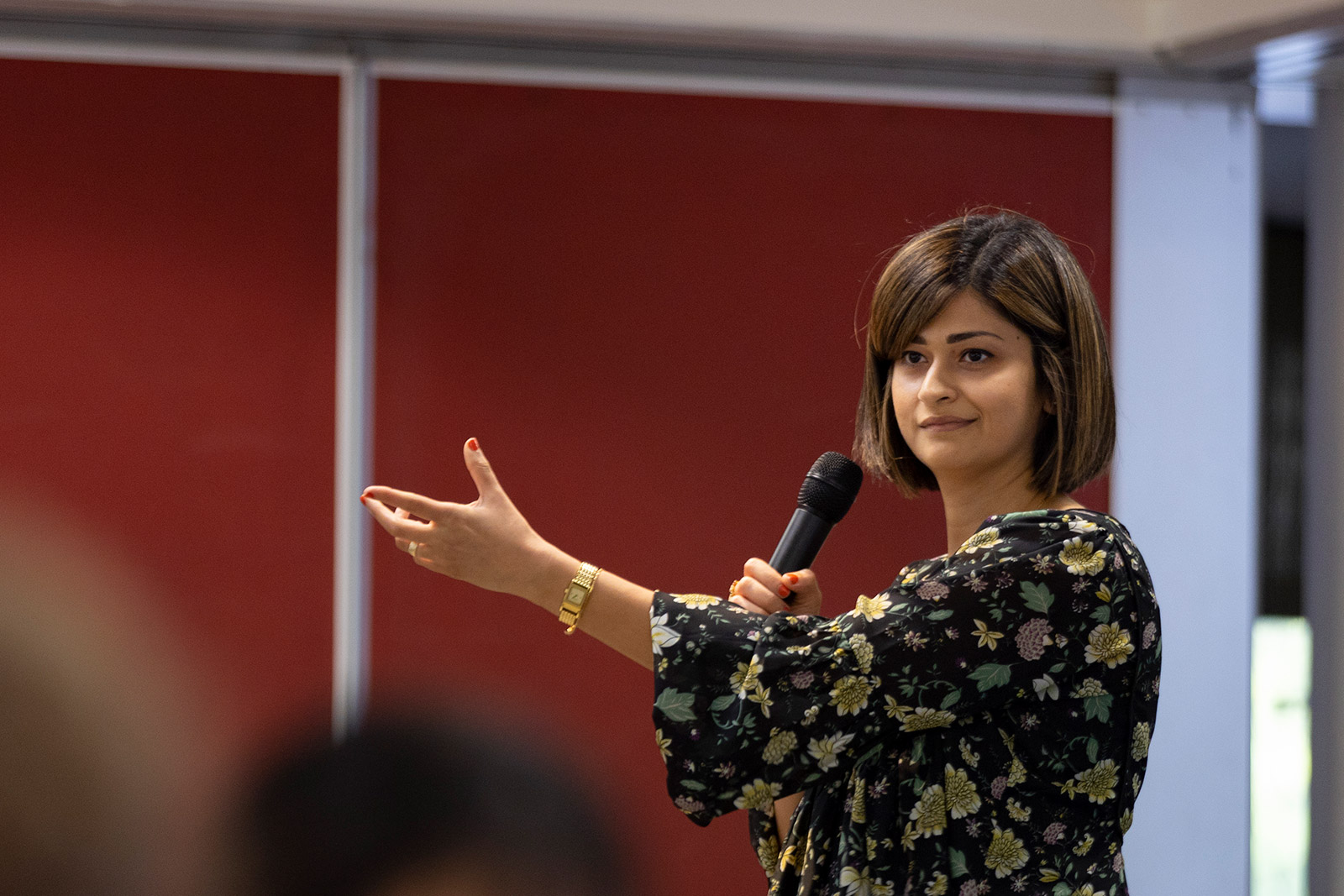“Popular protests are on the rise, and they are increasingly going global. Over the past five years, popular movements demonstrating against fiscal austerity and corruption have brought down democratic governments from Europe and Latin America to Africa and Asia. Pro-democracy protests in authoritarian countries have also proliferated, with several having succeeded in ousting long-ruling leaders.” —World Politics Review, Feb. 24, 2023.
Against that backdrop, Eckerd College Political Science and International Relations and Global Affairs Professors Michael Burch, Allison Quatrini, Mary Meyer McAleese and Sidra Hamidi led a public discussion March 1 centered on recent large-scale protests in Iran, China and Brazil. The professors addressed why the protests are happening and what methods are making them successful.
Titled “Global Unrest: Prospects for Protest Around the World,” the discussion was part of Eckerd’s College Program Series and was sponsored by the Political Science and International Relations and Global Affairs disciplines.
Allison Quatrini, Ph.D., an assistant professor of political science who has been working in China since 2007, noted that massive protests in that country recently were in response to a deteriorating economy and excessive COVID-19 restrictions. “At least 10 people died in an apartment building because the people were locked inside and couldn’t leave,” Quatrini said, adding that a popular form of protest was to hold up white pieces of paper. Nothing was written on the paper, Quatrini said, “but the meaning was clear.
“We’re also seeing many more young women participating,” she added, “and the protests are pan-ethnic. That scares the Communist Party a lot.”
Next, Mary Meyer McAleese, Ph.D, professor of political science, turned the audience’s attention to Brazil, a country that held a presidential election last year that led to protests on January 8 that were similar to the January 6 insurrection in Washington, D.C., in 2021. She also noted large-scale anti-government protests in Peru and Mexico. “In Latin America,” she added, “people are really angry about the economy and corruption. There’s high inflation, and the elites control most of the wealth.”
Michael Burch, Ph.D., associate professor of political science, pointed to the massive protests last fall in Iran over 22-year-old Mahsa Amini, who died in police custody in September after her arrest for “improperly wearing” her hijab. Burch noted that protests were held not just in the capital of Tehran but in rural areas and even during the opening of the 2022 World Cup soccer tournament, when Iranian players refused to sing their country’s national anthem.
“But there was a very strong response to quell the protests,” Burch added. “There were hundreds of arrests and the use of physical violence, including using rubber bullets that were shot into the eyes of the protesters.”
Israel is another country experiencing widespread protest, Burch said, centered mostly on Prime Minister Benjamin Netanyahu, who is under investigation for corruption but is pushing a judicial reform bill that would allow a prime minister to avoid prosecution. “There were massive street protests in Israel just last weekend,” Burch added. “And the Israeli police used stun grenades and tear gas to break them up.”
But it’s not just politics that spark national protests, said Sidra Hamidi, Ph.D., an assistant professor of political science who organized the event. The gap between rich and poor as well as a lack of inclusion also play key roles. “Economic inequality transcends borders,” she said. “What can we learn from these actions? One thing is that success is hard to define.”
The simple act of standing up to authority, Meyer McAleese added, is inherently good and healthy for the democratic process, and for those looking to emulate it. “There are protests in China right now,” Quatrini said. “Every day.”
“So don’t be afraid,” Meyer McAleese told the audience of mostly students. “Be involved. Vote.”














